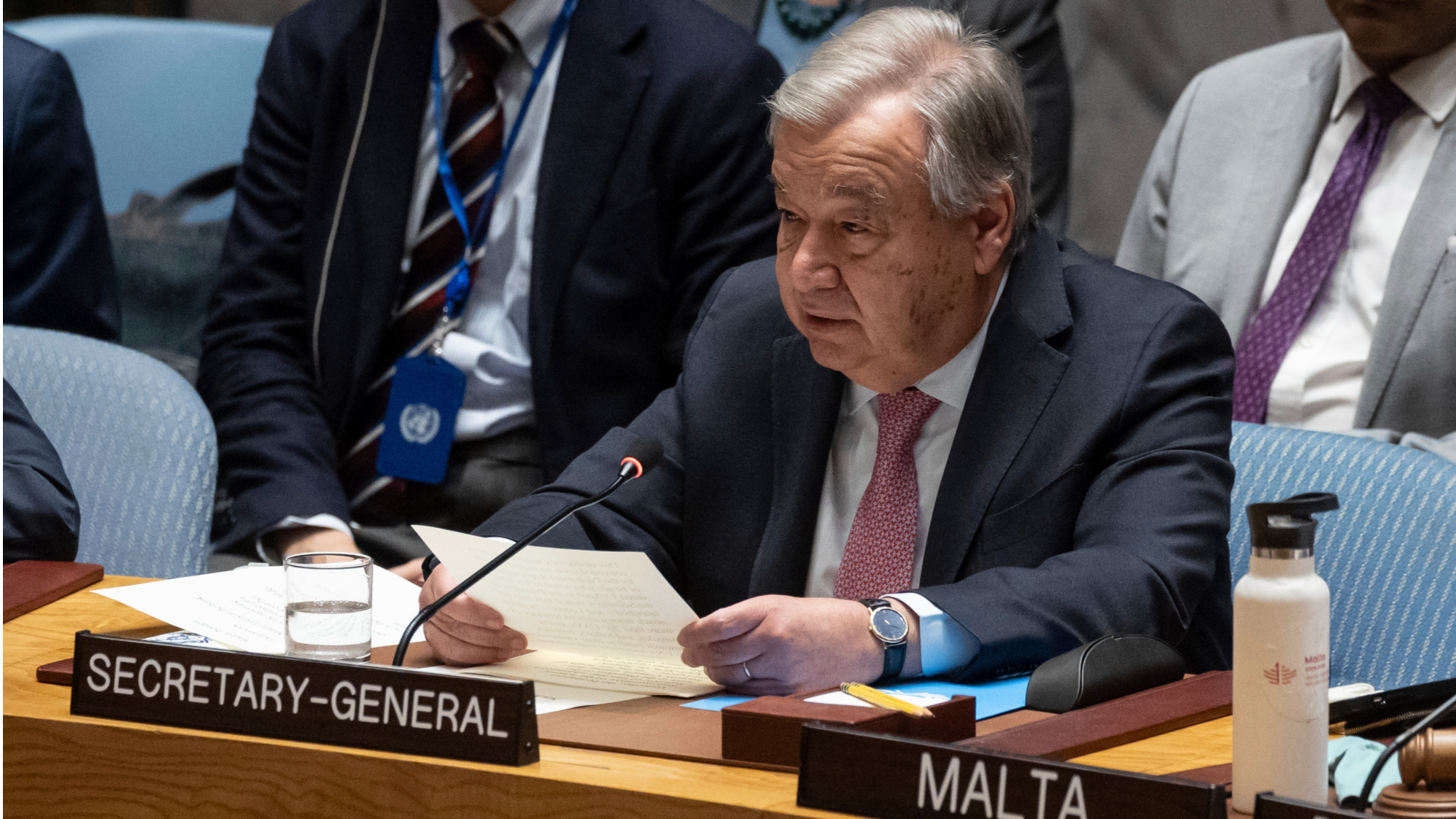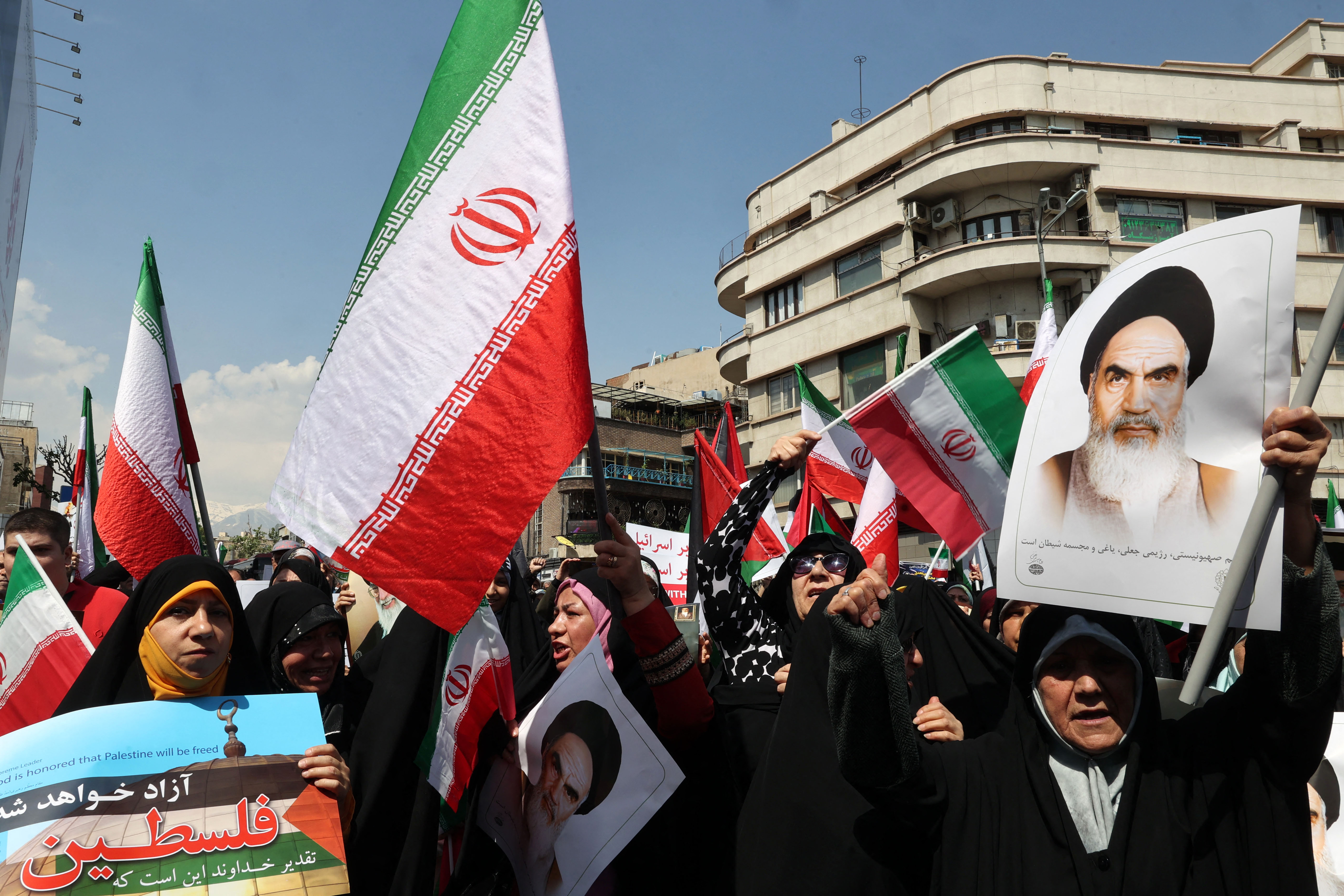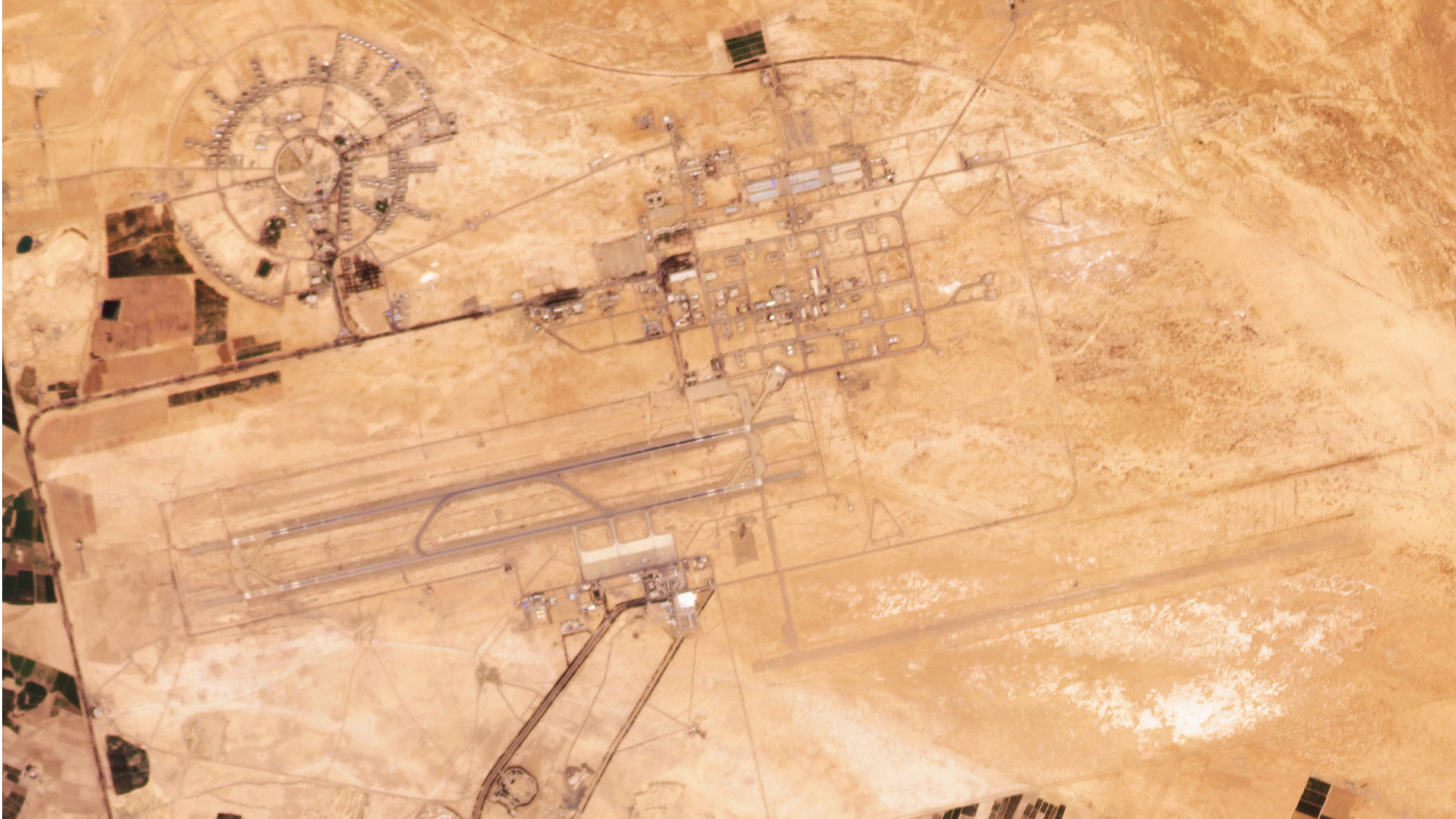
UNITED NATIONS / CAIRO / ROME - UN Secretary-General Antonio Guterres on Friday called for an end to "stop the dangerous cycle of retaliation in the Middle East," said his spokesman.
"The secretary-general reiterates that it is high time to stop the dangerous cycle of retaliation in the Middle East," said Stephane Dujarric, the spokesman, in a statement issued after reports that Israel has carried out strikes on Iranian targets.
"The secretary-general condemns any act of retaliation and appeals to the international community to work together to prevent any further development that could lead to devastating consequences for the entire region and beyond," said the spokesman.
Tehran, which last week launched large-scale retaliatory attacks on Israel following Israel's bombing of its consulate in Syria, has played down Friday's attack.
READ MORE: Experts: Mideast tensions up energy fears
Countries in the Middle East also voiced their concern over military escalation in the region after Israel on Friday allegedly struck sites near the city of Isfahan, central Iran, in what appeared to be its military response to Iran's recent attack.
In a statement, the Egyptian Foreign Ministry called on the two sides to exercise the utmost restraint and to fully comply with the rules of international laws and the UN Charter, warning against widening the conflict and instability in the region.
Egypt stressed that it will continue to intensify communications with all concerned and influential parties to contain the ongoing escalation and tension.
Jordanian Deputy Prime Minister Ayman Safadi on Friday stressed the need to reduce the dangerous escalation in the region and reiterated that "Jordan will not allow it to be turned into an arena of conflict between Iran and Israel"
In addition, the Iraqi Foreign Ministry said in a statement that the ministry "is constantly monitoring the tension in the region," expressing its deep concern about the attack targeting Isfahan this morning.
The ministry said that the escalation must not distract attention from the destruction and loss of innocent lives in the Gaza Strip, renewing its call on the international community to perform its duties and work to stop the suffering of the Palestinian people, according to the statement.
ALSO READ: Türkiye warns of wider conflict after Iran-Israel tension
Jordanian Deputy Prime Minister Ayman Safadi on Friday stressed the need to reduce the dangerous escalation in the region and reiterated that "Jordan will not allow it to be turned into an arena of conflict between Iran and Israel, and to endanger its security and the safety of its citizen."
Safadi, who also serves as the Jordanian foreign minister, added on social media platform X that, "the current escalation only serves to divert attention away from the Israeli aggression on Gaza, stopping which must be the priority."
The Israeli attack came after Iran's Islamic Revolutionary Guard Corps confirmed Saturday that it had launched missile and drone attacks on Israel in retaliation for earlier airstrikes by Israel on April 1 on the Iranian consulate building in the Syrian capital of Damascus, which killed seven Iranians.
So far, Israel has not officially acknowledged the strikes on Isfahan, while Iran has not publicly accused Israel of carrying out them.
ALSO READ: Explosions heard in Iran's Isfahan, IAEA says no damage to nuke sitesA
Also on Friday, foreign ministers from the Group of Seven countries urged all parties involved in the Middle East conflicts to prevent further escalation.
Addressing a press conference Friday after a ministerial meeting in Capri, Italy, US Secretary of State Antony Blinken said the United States was not involved in Israel's strike, adding the G7 remained devoted to defusing the crisis.

"We are committed to Israel's security; we are also committed to de-escalating," Blinked added.
Despite the escalated tensions between Israel and Iran, the G7 "intensely focused" on the conflict in Gaza, he noted.
In their final document, the G7 ministers promised commitment to "a sustainable peace based on a two-state solution and the establishment of an independent Palestinian State."
"All parties must refrain from unilateral actions that undermine the prospect of a two-state solution," they urged.
Since the outbreak of the Israel-Hamas conflict on Oct. 7, 2023, nearly 34,000 Palestinians were killed and over 76,000 others injured by Israeli attacks in the Gaza Strip, according to the Health Ministry in Gaza. The death toll includes at least 13,800 Palestinian children, the United Nations Children's Fund (UNICEF) has said.
The G7 confirmed its opposition to any full-scale military operation by Israel in Rafah, where a majority of 1.7 million Palestinians forcibly displaced by the conflict are taking refuge.
ALSO READ: Leaders from Mideast urge de-escalation
Such an operation, they warned, "would have catastrophic consequences on the civilian population."
In addition, the G7 called for "specific, concrete and measurable steps to significantly increase the flow of aid into Gaza in light of imminent risk of famine for a majority of Gaza's population."
The Syrian Foreign Ministry on Friday condemned the Israeli strikes on Syrian military sites earlier in the day as a flagrant violation of Syrian sovereignty and a threat to regional stability
However, the United States on Thursday voted against a Palestinian request for full UN membership at the Security Council. The decision not only drew wide disappointment, but also called into question the US sincerity to realize the inalienable rights of the Palestinians.
Meanwhile, the Syrian Foreign Ministry on Friday condemned the Israeli strikes on Syrian military sites earlier in the day as a flagrant violation of Syrian sovereignty and a threat to regional stability.
In a statement, the ministry warned that such actions could escalate tensions in the region, potentially leading to a broader conflict, and urged the international community, including the UN Security Council, to condemn the attack and take decisive measures to halt the "crimes" committed by Israel.

In the early hours of Friday, the Israeli military launched a series of airstrikes targeting Syrian air defense sites in the southern region, according to the Syrian Defense Ministry. The strikes caused material losses, while no casualties were reported, it added.
The attack was also confirmed by the Syrian Observatory for Human Rights, with it reporting that more than six Israeli aircraft were observed flying intensively in southern Syria.
The radar battalion responsible for monitoring the airspace, located in the east of Syria's Daraa province, was targeted, the war monitor added.


